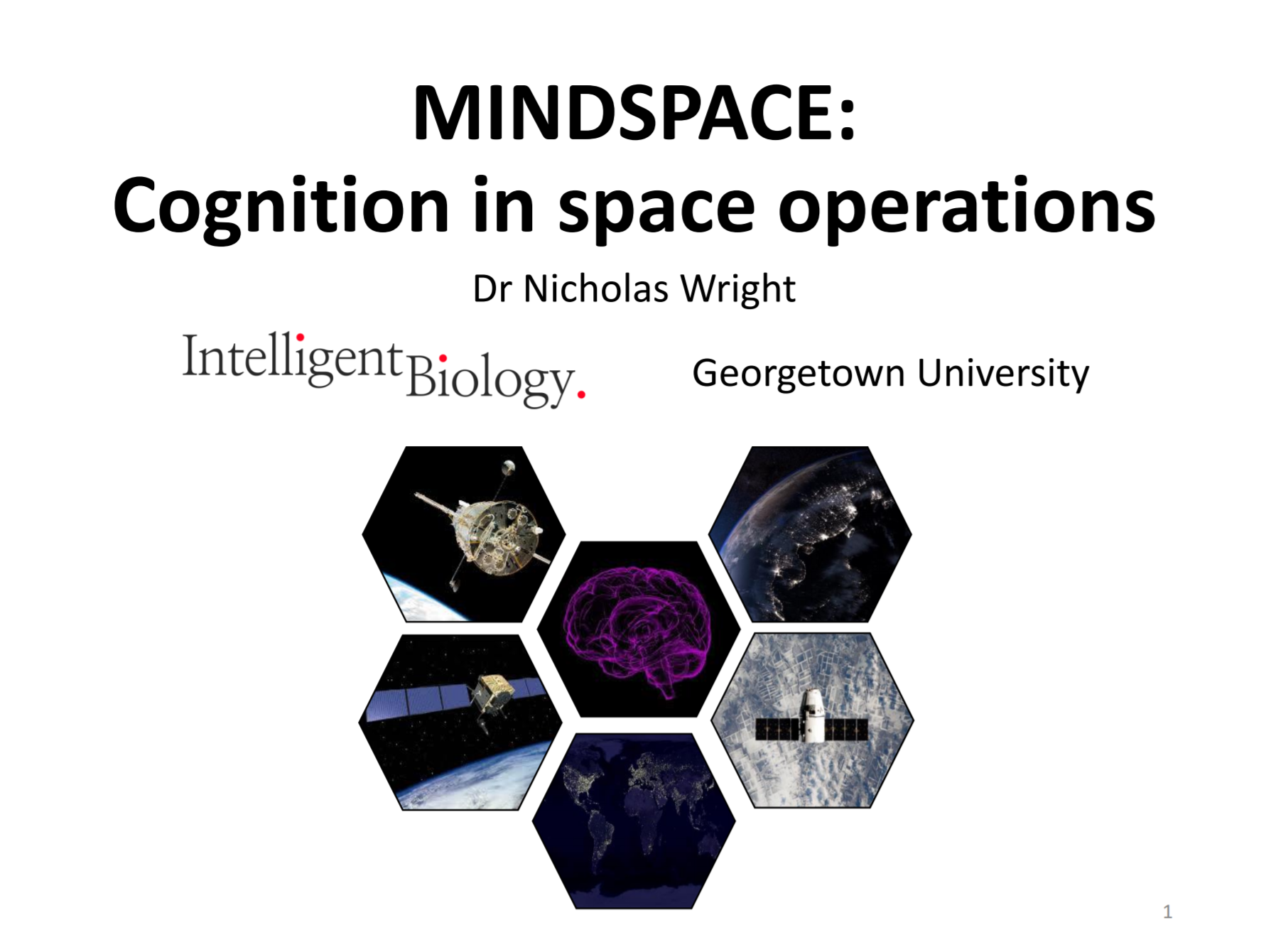MINDSPACE: Cognition in Space Operations
SMA hosted a speaker session with Dr. Nicholas Wright (Intelligent Biology / Georgetown University) as part of its SMA Contested Space Operations: Space Defense, Deterrence, and Warfighting (Space) Speaker Series.
Date: 21 June 2018
Speaker Session Preview
SMA hosted a speaker session presented by Dr. Nicholas Wright (Intelligent Biology / Georgetown University) as a part of its SMA Space Speaker Series. Dr. Wright began by posing a question: “How do we create power in space?” He then stated that strategy is the art of creating power in space and that creating this power is fundamentally cognitive, requires both influence and control, and is dependent on the environment. Dr. Wright explained that US (space) decision makers need to think from the “outside in,” meaning that they should place the audience’s decision-making process at the heart of influence. They must also take culture seriously, for example, by considering if strategic thinking differs between China and the US due to cultural differences, and positing the key cognitive foundations that underlie deterrence, escalation management, offense, and defense in space. He then reviewed all of the key factors and associated cognitive foundations that are crucial for successful space operations. Dr. Wright concluded the session by discussing the role of space in gray zone conflicts.
This speaker session supported SMA’s Contested Space Operations: Space Defense, Deterrence, and Warfighting (Space) project. For additional speaker sessions and project publications, please visit the Space project page.
Speaker Session Recording
Briefing Materials
Biography
Dr. Nicholas Wright is a consultant at Intelligent Biology and an affiliated scholar at the Pellegrino Center for Clinical Bioethics at the Georgetown University Medical Center. He applies insights from neuroscience and psychology to decision-making in international confrontations in ways practically applicable to policy. He has conducted work for the UK Government and Pentagon Joint Staff. He was previously an Associate in the Nuclear Policy Program, Carnegie Endowment for International Peace, Washington DC, and a Senior Research Fellow at the Institute for Conflict, Cooperation and Security at the University of Birmingham (UK). Prior to joining Birmingham and Carnegie, he examined decision-making using functional brain imaging at University College London (UCL) and in the Department of Government at the London School of Economics. He worked clinically as a neurologist in Oxford and at the National Hospital for Neurology in London. He has published academically (e.g. Proceedings of the Royal Society), in general publications such as the Atlantic or National Interest, and with the Joint Staff at the Pentagon (see www.nicholasdwright.com/publications).
He has briefed multiple times at the Pentagon, and also at the UK MoD, French MoD, German Foreign Office and elsewhere. He has appeared on the BBC and CNN. Wright received a medical degree from UCL, a BSc in Health Policy from Imperial College London, has Membership of the Royal College of Physicians (UK), has an MSc in Neuroscience and a PhD in Neuroscience both from UCL.
Slides

Comments